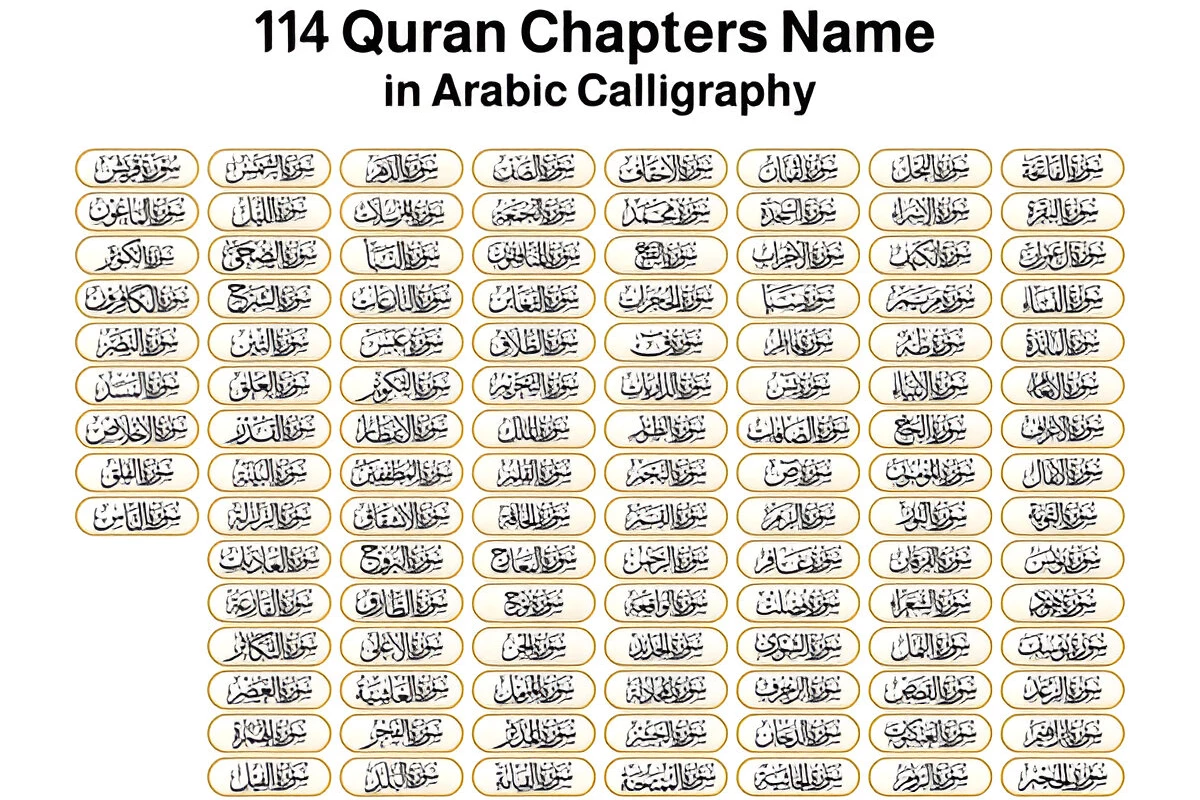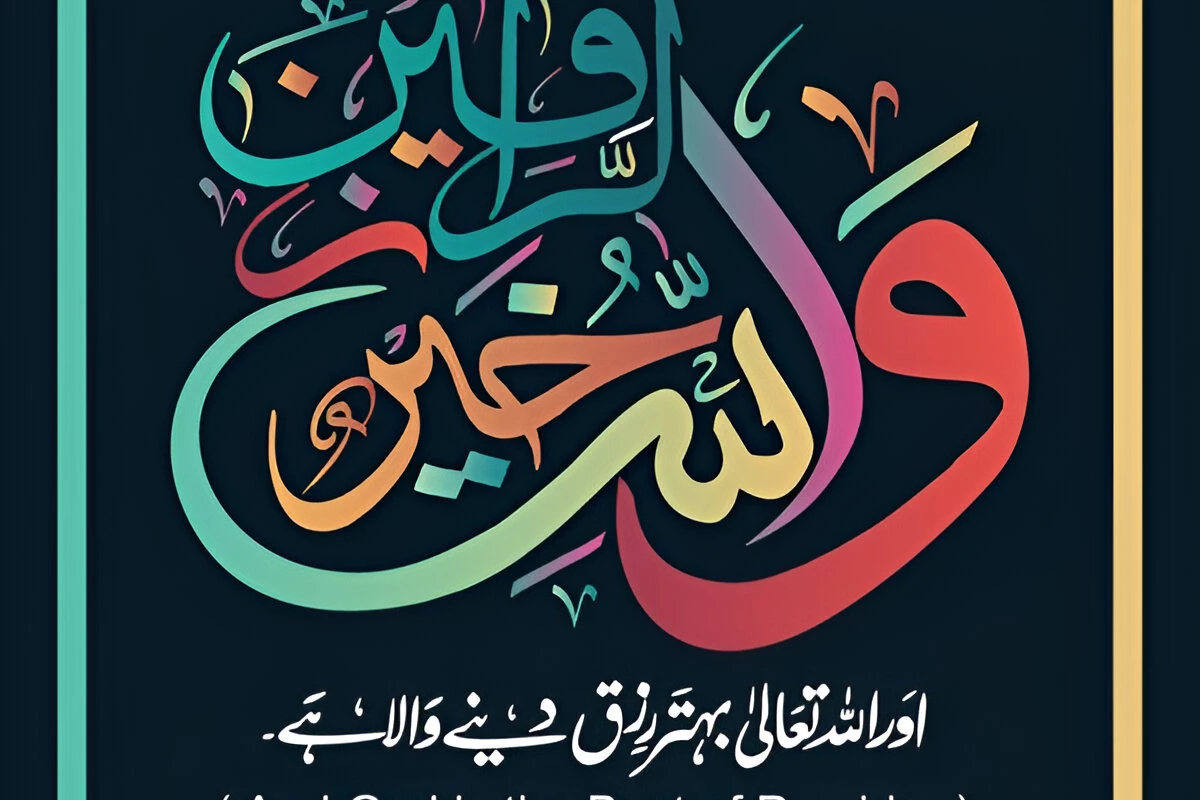Chapters of Quran, the holy ebook of Islam, is divided into 114 chapters, appertained to as surahs. These( chapters of Quran) contain the godly communication set up out to Prophet Muhammad( peace be upon him) over a period of 23 times. Each ruin offers precise perceptivity, steering, and understanding for religionists. In this comprehensive companion, we’ll discover the shape, significance, and motifs of the Quranic chapters, helping you consolidate your information of this sacred textbook.
Understanding the Structure of Quranic Chapters
Before we claw into the specific( chapters of Quran), allow’s first fete their introductory shape and pot.
Number and Length of Chapters
The Quran includes 114 chapters, varying drastically in length
- The longest chapter, Al- Baqarah( The Cow), has 286 verses.
- The shortest ruin, Al- Kawthar( Cornucopia), has stylish 3 verses.
Meccan and Medinan Chapters
The( chapters of Quran) are categorised grounded completely on wherein they’ve been set up out
- Meccan Chapters Revealed in Mecca before the migration( Hijrah) to Medina.
- Medinan Chapters Revealed in Medina after the Hijrah.
This difference is essential because it frequently displays the subject matters and focus of the chapters.
Order of Chapters
The order of( chapters of Quran) in the collected Quran is n’t chronological. rather, they are generally organized from longest to shortest, with some exceptions.

Crucial Themes in the Chapters of Quran
While each chapter has its unique focus, several overarching themes appear throughout the( chapters of Quran)
Deism (Tawheed)
Prophethood and godly disclosure
The Day of Judgment
Moral and ethical training
Stories of former prophets and nations
Laws and regulations for individual and social life
The natural world as signs of Allah’s actuality and power
Notable Chapters of Quran
Let’s explore some of the most well- known and constantly recited (chapters of Quran)
Al- Fatihah (The Opening)
- Chapter Number 1
- Verses 7
- Type Meccan
Al- Fatihah is the opening chapter of the Quran and is recited in every prayer. It’s frequently appertained to as “The mama of the Book” due to its significance.
Al- Baqarah (The Cow)
- Chapter Number: 2
- Verses: 286
- Type: Medinan
The longest chapter in the Quran, Al- Baqarah covers colorful motifs including faith, Islamic law, and stories of former prophets.
Yasin
- Chapter Number: 36
- Verses: 83
- Type: Meccan
Frequently called the “heart of the Quran,” Yasin is constantly recited for its spiritual benefits and important communication about the afterlife.
Ar-Rahman (The Most Gracious)
- Chapter Number: 55
- Verses: 78
- Type: Medinan
This chapter beautifully describes Allah’s blessings and favors upon His creation, with the recreating verse “also which of the favors of your Lord will you deny?”
Al-Kahf (The Cave)
- Chapter Number: 18
- Verses: 110
- Type: Meccan
Al- Kahf contains several important stories, including the People of the Cave and the hassles of Moses with Khidr.
The Significance of Studying Quranic Chapters
Understanding the( chapters of Quran) is pivotal for several reasons
- Spiritual Growth Each chapter offers unique spiritual perceptivity and guidance.
- Literal environment The chapters give a window into the early Islamic period and the challenges faced by the early Muslim community.
- Literary Appreciation The Quran’s verbal beauty and structure come more apparent when studying its chapters.
- Practical Guidance numerous chapters offer direct advice and rules for diurnal life.

How to Study the Chapters of Quran
To truly profit from the( chapters of Quran), consider the following approaches
- Regular Enumeration Set away time each day to recite portions of different chapters.
- Restatement Study Read dependable restatements to understand the meaning of the verses.
- Tafsir (Exegesis): Explore scholarly interpretations of the chapters to gain deeper perceptivity.
- Thematic Study: Focus on specific themes across different chapters.
- Memorization launch with shorter chapters and gradationally work your way to longer bones
For a comprehensive resource on Quranic studies, you might find the QuranAcademy.org website helpful. They offer colorful courses and coffers for studying the Quran.
Unique Features of Quranic Chapters
The (chapters of Quran) have several unique features that set them piecemeal
Opening Phrases
Numerous chapters begin with unique opening expressions or letters, known as” Muqatta’at” or” dissociated Letters.” For illustration
- “Alif, Lam, Meem”( الم) in Surah Al- Baqarah
- “Ya, Sin”( يس) in Surah Yasin
The exact meaning of these letters is considered part of the Quran’s cautions.
Thematic consonance
Despite being revealed over 23 times, the( chapters of Quran) display remarkable thematic consonance. Each chapter has a central theme or communication that ties its verses together.
Rhetorical Devices
The Quranic chapters employ colorful rhetorical bias, including
- Reiteration for emphasis
- Rhetorical questions
- Circumlocutions and parables
- Oaths
These bias contribute to the Quran’s verbal beauty and impact.
Meccan vs. Medinan Chapters A Comparison
Understanding the difference between Meccan and Medinan (chapters of Quran) can give precious environment
| Aspect | Meccan Chapters | Medinan Chapters |
|---|---|---|
| Main Themes | Monotheism, Day of Judgment, moral teachings | Social laws, community organization, interactions with other faiths |
| Length | Generally shorter | Often longer |
| Style | More poetic, with shorter verses | More prosaic, with longer verses |
| Historical Context | Revealed when Muslims were a minority | Revealed when Muslims had established a state |
Online coffers for Studying Chapters of Quran
In moment’s digital age, there are multitudinous online coffers available for studying the (chapters of Quran)
- Digital Quran Apps Apps like Quran.com offer easy access to the textbook, restatements, and audio recitals.
- Online Tafsir Websites like Altafsir.com give expansive narrative on Quranic chapters.
- Videotape Lectures numerous scholars offer videotape explanations of Quranic chapters on platforms like YouTube.
- Interactive Courses Websites like ours offer structured courses on understanding and reciting the Quran.
The Impact of Quranic Chapters on Islamic Civilization

The (chapters of Quran) have had a profound impact on Islamic civilization
- Language and Literature The Quran’s verbal style told Arabic literature and poetry.
- Law and Governance numerous Islamic legal principles are deduced from Quranic chapters.
- Science and Philosophy Verses encouraging observation and reflection inspired scientific inquiry in the Islamic Golden Age.
- Art and Architecture Quranic penmanship came a major art form in Islamic societies.
Conclusion Embarking on Your Quranic trip
The (chapters of Quran) offer a wealth of knowledge, guidance, and spiritual aliment. Whether you are a freshman just starting to explore the Quran or an advanced pupil looking to consolidate your understanding, there is always further to discover in these godly verses.
We encourage you to embark on a trip of disquisition through the Quranic chapters. Start with the shorter, more constantly recited chapters and gradationally work your way through the longer, more complex bones . Flash back, the key is thickness and sincere intention.
At (Chapters of Quran), we offer online Quran classes acclimatized to help you understand and connect with the Quranic textbook. Our educated preceptors can guide you through the complications of each chapter, helping you unleash the wisdom contained within.
Whether you choose to study singly or with guidance, flash back that engaging with the( chapters of Quran) is a lifelong trip. Each reading can bring new perceptivity and a deeper connection with the godly communication.






Islam - An In-Depth Overview of Core Beliefs, Practices, and Values » Online Quran Islam Acadmey
[…] and ethical living, grounded in the teachings of the Prophet Muhammad (peace be upon him) and the Quran. This blog provides an overview of Islam, covering its core beliefs, practices, and […]
Complete Quran Recitation – Guide, Benefits & Online Courses
[…] pupil aiming to quality your Tajweed, this guide will provide valuable insights into the artwork of Quranic recitation. Let’s discover the stairs, techniques, and blessings of conducting [complete Quran […]